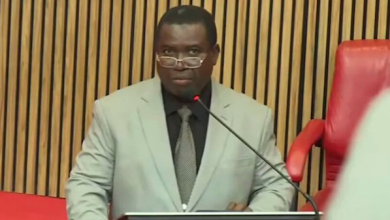Enugu Moves to Ban Money Rituals, Bulletproof Charms, and Okeite
In a decisive move to curb ritual-related crimes, Enugu State has submitted a bill banning bulletproof charms, money rituals, and Okeite practices.
If passed, traditional healers must register under new regulations aimed at stopping criminal exploitation of spiritual beliefs across the state.
SEE ALSO: Wanted Enugu Native Doctor, Obi Obieze, Arrested
In a bold and historic move aimed at curbing crime and promoting public safety, the Enugu State Government has transmitted an executive bill to the State House of Assembly seeking to outlaw money rituals, the use of bulletproof charms, and the practice of “Okeite” a controversial spiritual practice believed to provide invincibility or supernatural powers.
The bill, championed by Governor Peter Ndubuisi Mbah, signals the state’s firm commitment to cracking down on ritualistic crimes and other forms of spiritual practices that have become intertwined with criminality in parts of southeastern Nigeria. Once passed into law, the proposed legislation will impose strict regulations on the activities of native doctors, herbalists, spiritualists, and traditional healers across Enugu State.
According to government insiders, the bill outlines a comprehensive framework that would require all traditional practitioners commonly known as Dibias, Ezenwanyi, herbalists, and other spiritual consultants to undergo mandatory registration with a newly established regulatory body. The move is designed to bring transparency and accountability to a largely unregulated sector that has, in some cases, served as a cover for criminal activities including money rituals and violence-related occult practices.
Under the proposed law, unregistered practitioners may face fines, imprisonment, or both. The bill also prohibits the production, sale, and use of charms or potions that are claimed to offer protection from bullets, death, or law enforcement intervention. Furthermore, any ritual or spiritual practice aimed at acquiring sudden wealth through mysterious or unexplained means will be considered illegal.
Speaking anonymously, a senior official in the governor’s office described the initiative as “a much-needed step toward protecting lives, discouraging youths from harmful practices, and restoring integrity to cultural traditions that have been misused and commercialized.” He added that Governor Mbah is determined to stop the rise of ritual killings and the glorification of wealth obtained through suspicious or criminal means.
The practice of “Okeite” a term locally associated with spiritual fortification, believed to make individuals immune to bullets and attacks has been particularly concerning for security agencies. According to law enforcement reports, several criminals arrested in the state in recent years have confessed to relying on such charms in their illegal operations.
Security experts and civil society organizations have praised the proposed law as a timely intervention. Human rights lawyer, Barrister Chinedu Ugwu, noted, “For too long, criminals have exploited our people’s belief in the supernatural to commit heinous crimes. Regulating native practitioners will help sanitize the system and discourage the use of these powers for evil.”
Meanwhile, traditional leaders and some members of the community have welcomed the development but are calling for broad stakeholder engagement before the bill is passed. Chief Ogbonna Ede, a well-respected elder in Nsukka, said, “We support the government’s efforts to end rituals and fake spiritualists, but there are genuine herbal practitioners who save lives. We must not throw away our heritage; instead, we must separate culture from crime.”
If enacted, Enugu State would become one of the first states in Nigeria to implement such detailed oversight over traditional spiritual practices. The move also aligns with Governor Mbah’s broader agenda of reforming the security and legal systems while fostering a culture of innovation, youth empowerment, and zero tolerance for crime.
The State House of Assembly is expected to deliberate on the bill in the coming weeks, with public hearings likely to be scheduled to gather opinions from the traditional medicine community, legal experts, and the general public.
As the conversation around the ethics and legality of spiritual practices continues to grow, Enugu’s legislative push may set a new benchmark for other Nigerian states grappling with similar issues.




Good, really getting out of hand